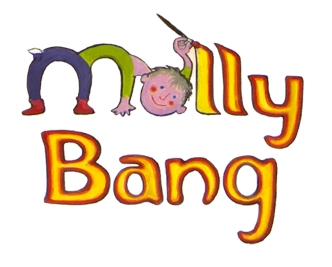
Common Ground: The Water, Earth, and Air We Share
Giverney Prize for Best Science Picture Book, 1998
First published in 1997
About the Story
Common Ground discusses a concept that is so simple that even a kindergartner can understand it. It also describes a situation that causes such violent disagreement that human society hasn't figured out how to address it. But if we don't address it, human life itself is in danger. That said, here is some background on the book.
In 1968, an ecologist at Yale University named Garrett Hardin wrote a paper in Science magazine called "The Tragedy of the Commons." The paper caused a furor of argument in both scientific and political circles. It has been reviled, praised, misunderstood and hailed as one of the defining truths of ecology.
Here is the concept:
- IF there is a common or shared resource owned by all or none of us, and
- IF I can use the common resource at little or no cost to me, and
- IF I get to pocket all or most of the profit I make from its use, I am going to do it.
- I benefit from my use of the commons. As long as I'm not greedy, and as long as the commons is large in comparison to what I use, there is no problem.
- But even if I'm not greedy, my neighbors might be.
- Even if my neighbors aren't greedy, someone or some corporation clear across town might be. And that greedy person or corporation poses a problem. The person or corporation uses more and more of the commons—something that belongs to all of us—but only that person or corporation pockets most of the profit. Our common resource is depleted, but only a few individuals benefit.
- This can go on until holes begin to appear in the commons and all of our lives—and the lives of other living things—are affected.
- This is the situation we're in today.
- So far we don't have the understanding or the political will to address it.
After I wrote the book, I received a letter from a man who owned a lumber company. He was very angry that I had shown 'all' lumber companies as clear-cutting and greedy. This man was the third generation owner, and he wrote that he did not simply clear cut his land and move on, but that he had to maintain his forest so that his children would have it to make a living from. He had to maintain it responsibly, because he knew it was the foundation for his family's livelihood. The man was right. Not ALL fishermen or lumber companies or other citizens are irresponsible and greedy. Many of us try to be as responsible as possible.
Let me use this man to show only three of many ways in which our present system is inadequate to deal with the problem of the commons.
- Let's say that this land was common land and everybody got to use it. Unless there are very strict laws, or a very strong sense of community responsibility, most people would be tempted to cut down just one or two extra trees. Unless a strict system is set up for maintaining a resource, people tend to use it up—as we have done with many species of fish.
- This man has decided to keep the land he owns to pass on to his children and grandchildren. Now this is his land, not common land, and he can do whatever he wants with it, within some limits. Suppose he needed a sudden lump sum of money and decided to clear-cut a large section of the property. Or suppose his neighbor, who owns just as much forest land, decides to cut down the forest and build condominiums, since the rising population needs someplace to live. Once the land was clear-cut, erosion would cause the rich topsoil mud to wash into local streams, silting up the streams. The owner of the forest would not have to pay for the damage he had caused to the stream—the common resource.
- Suppose the man suddenly discovered an oil field underneath his land, and so he extracted millions of barrels of oil from it. He might have to install equipment to reduce emissions, but does he have to pay for any pollution he causes of the air we all share or the pollution pouring into the river that flows by his factory?
Our system is set up in such a way that the companies and the people who benefit most from using up our resources do not have to pay the costs of maintaining them.
So long as some person or company can take as much of a resource as possible without being responsible for maintaining it, somebody will.
In 2009 Elinor Ostrom won the Nobel Prize for her work on the concept of a Commons and came up with eight principles for maintaining a commons. To learn more about maintaining the Commons, click here.
copyright 2018 by Molly Bang


